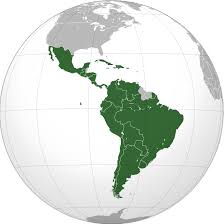Mobile wallet, satellite broadband, carrier Wi-Fi, fiber-to-the-home, machine-to-machine services and LTE are the main technology trends in Latin America for 2014, according to Frost & Sullivan. The key technology this year according to the firm’s analysts is LTE, which is gaining relevance across the region.
Renato Pasquini, Frost & Sullivan’s industry manager, noted that LTE adoption is expected to help drive the over-the-top market for both telecom operators and independent services. By the end of 2014, the consultant firm forecasts there will be 7.9 million LTE connection in the region, a 292% growth year-over-year, driven by adoption in Brazil.
The World Cup is driving telecom investments in Wi-Fi, with Brazil leading the rapid growth of this technology to offload data traffic. The strategy is to offer public Wi-Fi access on a “freemium” basis to existing mobile and fixed broadband subscribers providing the basic service for free, but charging for additional features. As for M2M, service providers are expected to race to position themselves in this field.
According to Frost & Sullivan, the satellite “Ka” band, which now supports commercial services in Latin America, is emerging as a true alternative for Internet broadband, including covering metropolitan areas. The satellite market is expected to grow 7.8% year-over-year, reaching 170,000 links.
900 MHz: Peru has started the migration or replacement process for fixed wireless telephony equipment, industrial equipment and auxillary radio links that have been operating in the 900 MHz band in an attempt to clean the band. The government is taking this action so that the Viettel Group can operate without interference on the band. Viettel, the fourth largest mobile operator in the country, was awarded the 899-915 and 944-960 MHz bands in the province of Lima and Callao, and the 902-915 and 947-960 MHz bands across the rest of the country.
All industrial and residential equipment that operate on this band will be replaced by May 29 of this year, according to the proposed schedule.
3G expansion: Nextel, NII Holdings’ subsidiary in Brazil, is expanding its 3G offering to four state capitals: Curitiba, Brasília, Goiânia and Recife. The announcement was made almost one week after an agreement with Telefónica to provide nationwide voice and data coverage services using Telefónica’s 3G wireless networks in Brazil and Mexico. However, Nextel said that recent launches are the result of improvement and expansion of its own 3G networks. The carrier already offers iDEN services in those cities.
Telefónica in Costa Rica: Movistar Costa Rica announced that it now has one million customers with coverage reaching 98% of the country’s population. According to the local telecom operator that is owned by Telefónica, 85% of its customers use the mobile Internet and 60% own a smartphone. The carrier also took advantage of the country’s number portability regulation, with Movistar reporting that 75% of the customers who decided to take their number to a new carrier selected Movistar, boosting the company’s customer base. Movistar plans to offer LTE services in the country during the first half of 2014.
Changes in Hondutel: The Honduran state telco, Hondutel, has been turned into a private-listed company, and the Honduran congress has approved a decree to set up a bank trust to manage the teleco’s finances. The state-owned operator ended 2013 with a deficit of $29 million.
More Latin American news:
- Tracfone Wireless, which is a subsidiary of the Mexican telecom giant América Móvil, completed the acquisition of Page Plus, a mobile virtual network operator in the United States that provides services to approximately 1.4 million customers.
- Tigo Guatemala’s parent companies, Millicom and Miffin Associates, entered into a put and call agreement. Millicom currently owns a 55% stake in Tigo Guatemala while Miffin Associates owns 45%. Under the agreement, Miffin has granted Millicom an unconditional call option for its 45% stake with a minimum term of two years. In return, Millicom has granted its partner a put option for the same duration, that can be exercised in the event Millicom sells its interest in Tigo Guatemala or undergoes a change of control.
- Claro Brazil has expanded its LTE offering to residential and commercial customers.
- Nokia Solutions and Networks was selected by Colombia’s Avantel to supply the complete infrastructure for its LTE network. NSN will provide the complete suite of radio and core network equipment as well as building and operating services.
- Digicel is planning to invest around $500 million this year to expand its networks in the Caribbean and Central America.



